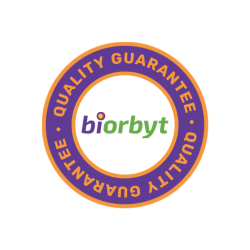You have no items in your shopping cart.
Cart summary

Argininosuccinate lyase Protein, Human, Recombinant (His & GST)
Catalog Number: orb1956526
| Catalog Number | orb1956526 |
|---|---|
| Category | Proteins |
| Description | The recycling of citrulline by argininosuccinate synthase 1 (ASS1) and argininosuccinate lyase (ASL) is crucial to maintain arginine availability and nitric oxide (NO) production. Nitric oxide (NO) plays an established role in numerous physiological and pathological processes, but the specific cellular sources of NO in disease pathogenesis remain unclear, preventing the implementation of NO-related therapy. Argininosuccinate lyase (ASL) is the only enzyme able to produce arginine, the substrate for NO generation by nitric oxide synthase (NOS) isoforms. Induction of endogenous NO production by enterocytes with supplements that upregulate ASL expression and complement its substrates results in improved epithelial integrity and alleviation of colitis and of inflammation-associated colon cancer. |
| Tag | His, GST |
| Purity | 98.00% |
| MW | 79.5 kDa (predicted); 68 kDa (reducing conditions) |
| UniProt ID | P04424 |
| Expression System | Baculovirus Insect Cells |
| Biological Origin | Human |
| Biological Activity | The recycling of citrulline by argininosuccinate synthase 1 (ASS1) and argininosuccinate lyase (ASL) is crucial to maintain arginine availability and nitric oxide (NO) production. Nitric oxide (NO) plays an established role in numerous physiological and pathological processes, but the specific cellular sources of NO in disease pathogenesis remain unclear, preventing the implementation of NO-related therapy. Argininosuccinate lyase (ASL) is the only enzyme able to produce arginine, the substrate for NO generation by nitric oxide synthase (NOS) isoforms. Induction of endogenous NO production by enterocytes with supplements that upregulate ASL expression and complement its substrates results in improved epithelial integrity and alleviation of colitis and of inflammation-associated colon cancer. |
| Expression Region | A DNA sequence encoding the human ASL(P04424) (Met1-Ala464) was fused with the N-terminal polyhistidine-tagged GST tag at the N-terminus. Predicted N terminal: Met |
| Storage | -20°C |
| Note | For research use only |
| Application notes | A Certificate of Analysis (CoA) containing reconstitution instructions is included with the products. Please refer to the CoA for detailed information. |
| Expiration Date | 6 months from date of receipt. |


